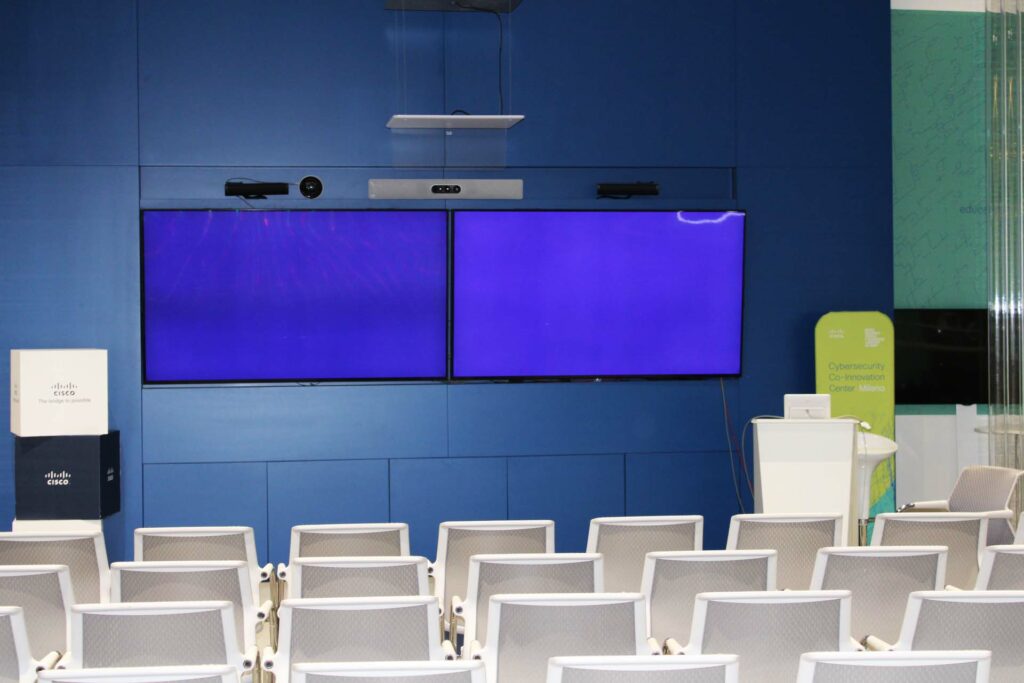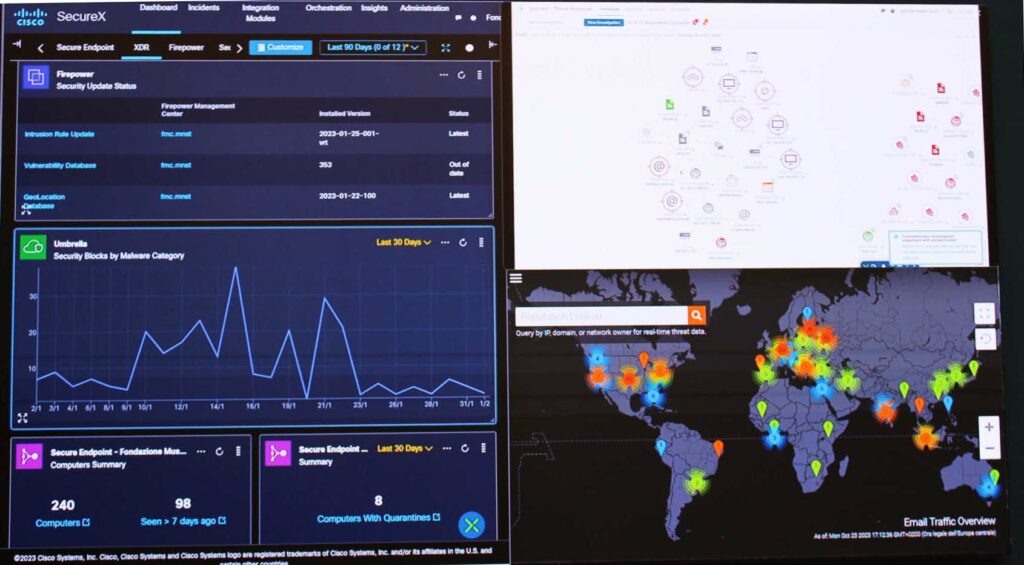Carlo Denza: 8 November 2024 07:58
We often talk about children’s relationship with digital devices. Even after the circular from the Ministry of Education and Merit, led by Giuseppe Valditara, which introduces a ban on the use of cell phones in class, from childhood to middle school, also for educational and didactic purposes. But are the dangers to child and data safety limited to cell phone use at school? No! as we will see, the most insidious dangers can also hide within the homein parents’ devices.
A new Cisco survey highlights the security risks of sharing company devices with your children.
Ciscoa leading technology company, recently conducted a survey via Censuswide on 6116 working parents aged over 18 from various European and non-European countries (United Kingdom, France, Spain, Switzerland, Italy, Poland, Netherlands, Sweden, South Africa , United Arab Emirates, Saudi Arabia and Germany) between 30 July and 8 August 2024. The study highlighted how sharing digital devices, particularly those used for work, is a widespread practice, despite the potential risks for safety.

The results of the survey
Is NIS2 complex to understand?
Don’t waste time, follow the free preview of the course we are preparing. Then log in to our Academy and follow the preview of the 30-minute course to understand the exclusive content we will cover in the course. For further information, write to us at [email protected] or write to us on Whatsapp at 379 163 8765
Support RHC through:
Do you like Red Hot Cyber articles? Don’t wait any longer, sign up for the weekly newsletter so you don’t miss any articles
A third of children have access to their parent’s device. Often the use occurs without supervision and knowing the access codes. 33% of children access their parents’ work devices and only 24% of respondents say they use two-factor authentication (2FA) as a security measure. An alarming fact, considering that these devices can contain sensitive company information.
The situation in Italy
According to the survey, the situation in Italy is alarming. 8 in 10 parents said they had shared their work device with at least one child in the last six months. Furthermore, only 17% of respondents use multi-factor authentication (MFA) for their most critical work taskswhile less than half rely on a VPN. The percentage of interviewees, 38%, who rely on passwords considered “strong” is even lower.
In a world where a growing number of devices in homes are connected to the network and shared among family members, it becomes essential to use best practices to ensure maximum security of data and digital devices. Among these good practices are: regular updates; strong passwords; beware of suspicious links and attachments; antivirus and anti-malware software; regular backups; secure wi-fi network; safe navigation. All essential precautions to protect company data, privacy and the safety of the whole family.
Expert advice
Martin Lee, a member of Cisco Talos EMEA Lead, a leading cyber threat research group, highlights the risks of unauthorized access to company data: “Any unauthorized access to sensitive data is a potential breach. Parents’ lack of control when their children use company devices introduces additional risks, such as the possibility of inadvertently sending or deleting data or making mistakes in managing email.”

How to protect company devices
To mitigate these risks, Cisco Talos experts suggest some best practices:
- Creare account guest: They allow family members to use the device in a limited way, without full access to company systems and data.
- Adopt multi-factor authentication (MFA): Secure access to business applications and systems with MFA or 2FA, also using biometric recognition.
- Use a VPN: Protect sensitive data by making it accessible only via VPN and requiring MFA/2FA authentication.
- Make regular backups: Protect your data from damage to the device (drops, liquids, etc.) by performing periodic backups.
- Educate about cybersecurity: Raise family awareness of the risks associated with the use of digital devices and cyber threats.
- Define clear company policies: Implement company policies that define user responsibilities in the event of security breaches.
In a world where the lines between professional and private life are increasingly blurred, protecting company devices with effective security measures is now essential to guarantee the safety of sensitive data and the peace of mind of the whole family.
 Carlo Denza
Carlo Denza
Graduated in IT, and as an electronic expert. He attended the Course of Study in Computer Science at the MM.FF.NN Faculty of Sciences. to Federico II of Naples. After a course in Java, he collaborated on the development of a web application for services in the healthcare sector. Publish a pamphlet, a collection of informative articles.


